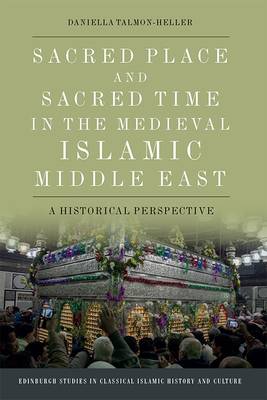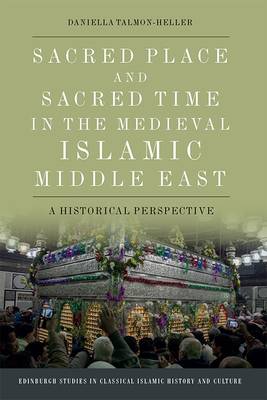
- Afhalen na 1 uur in een winkel met voorraad
- Gratis thuislevering in België vanaf € 30
- Ruim aanbod met 7 miljoen producten
- Afhalen na 1 uur in een winkel met voorraad
- Gratis thuislevering in België vanaf € 30
- Ruim aanbod met 7 miljoen producten
Sacred Place and Sacred Time in the Medieval Islamic Middle East
A Historical Perspective
Daniella Talmon-HellerOmschrijving
This book offers a fresh perspective on religious culture in the medieval Middle East. It investigates the ways Muslims thought about and practiced at sacred spaces and in sacred times through two detailed case studies: the shrines in honour of the head of al-Husayn (the martyred grandson of the Prophet), and the holy month of Rajab. The changing expressions of the veneration of the shrine and month are followed from the formative period of Islam until the late Mamluk period, paying attention to historical contexts and power relations. Readers will find interest in the attempt to integrate the two perspectives synchronically and diachronically, in a discussion of the relationship between the sanctification of space and time in individual and communal piety, and in the religious literature of the period.
Specificaties
Betrokkenen
- Auteur(s):
- Uitgeverij:
Inhoud
- Aantal bladzijden:
- 288
- Taal:
- Engels
- Reeks:
Eigenschappen
- Productcode (EAN):
- 9781474460972
- Verschijningsdatum:
- 14/12/2021
- Uitvoering:
- Paperback
- Formaat:
- Trade paperback (VS)
- Afmetingen:
- 156 mm x 234 mm
- Gewicht:
- 417 g

Alleen bij Standaard Boekhandel
Beoordelingen
We publiceren alleen reviews die voldoen aan de voorwaarden voor reviews. Bekijk onze voorwaarden voor reviews.









